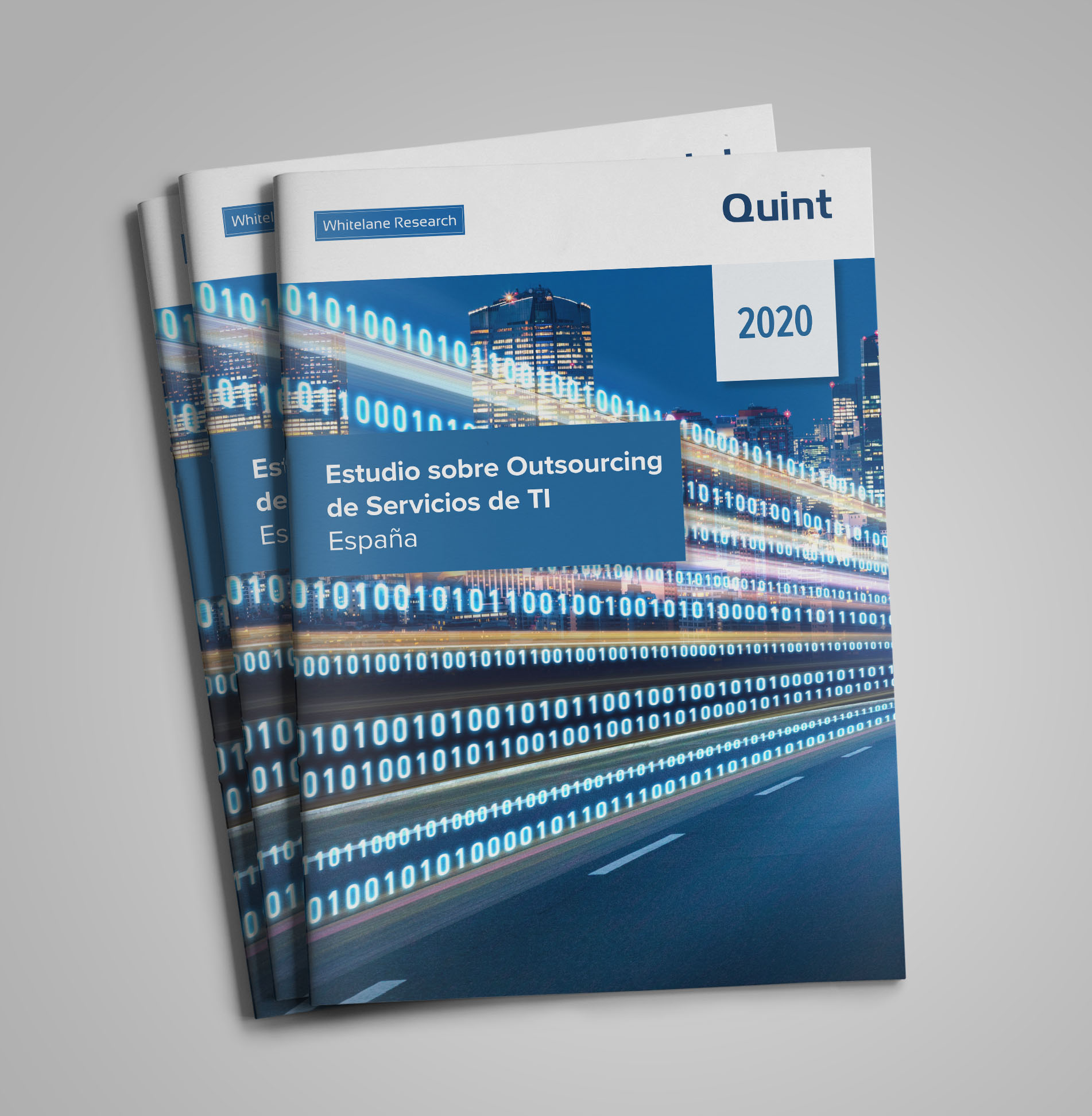2020 Spanish IT Outsourcing Study Results Published
The 2020 Spanish IT Outsourcing study, conducted by Whitelane Research in collaboration with Quint, investigates more than 620 unique IT outsourcing relationships and more than 450 cloud sourcing relationships held by over 230 participants of the top IT spending organisations in Spain. This makes it the most comprehensive Spanish survey to date with more than 1,070 outsourcing relationships investigated.

0+
Participants
0
IT/Cloud Service Providers
0+
IT sourcing relationships
0+
Cloud sourcing relationships
Over the next two years more outsourcing is predicted for Spain, with 76% of respondents planning to outsource at the same rate or more (down 7% since last year). Spain continues to have one of the lowest levels of insourcing (8%), contrasting what we have seen in the rest of Europe in 2020 where insourcing levels have increased to an average of 15%. The majority of organisations are insourcing in order to build and retain their own intellectual property to drive the business.
76%
More scalability to business needs, a new driver added in the 2020 survey, is the main reason for organisations planning to outsource more in Spain (cited by 60%). This is followed by improvement of service quality (54%) and cost reduction (51%).
Overall, respondents are satisfied with their IT service provider(s), with 94% of all 625 IT sourcing relationships being rated as satisfactory.
DXC Technology, Everis and Ibermática are the highest ranked providers with a joint score of 83%, followed by Accenture (81%), T-Systems, Deloitte, Econocom and TCS (all four at 80%). Satisfaction in Spain remains the highest across Europe and the average satisfaction this year further increased by two percentage points, from 75% to 77%. Our full report also ranks the 20 IT Outsourcing providers by applications, data centre and end-user services in addition to 9 Key Performance Indicators.
For the first time in this study we have asked organisations if they outsource their managed (cyber)security services. More than 70 relationships were evaluated, and the results reveal that overall, 93% of all evaluated relationships are rated as satisfactory. Nevertheless, two thirds of service providers suggest that their clients cybersecurity management skills require very significant improvement (compared with 15% of clients).
0%
of service providers suggest their clients can seriously improve their cybersecurity management skills.
Google leads the two new rankings for ‘infrastructure and software cloud platforms’ and satisfaction with the software cloud providers is very high, with an average satisfaction of 82% (5% above the average satisfaction on the overall ranking for IT outsourcing). Almost two thirds of all organisations predict that 50% or less of their applications portfolio will likely be running on a cloud platform in two years.
0%
Software Cloud Platforms (Average Satisfaction)
0%
Infrastructure Cloud Platforms (Average Satisfaction)

